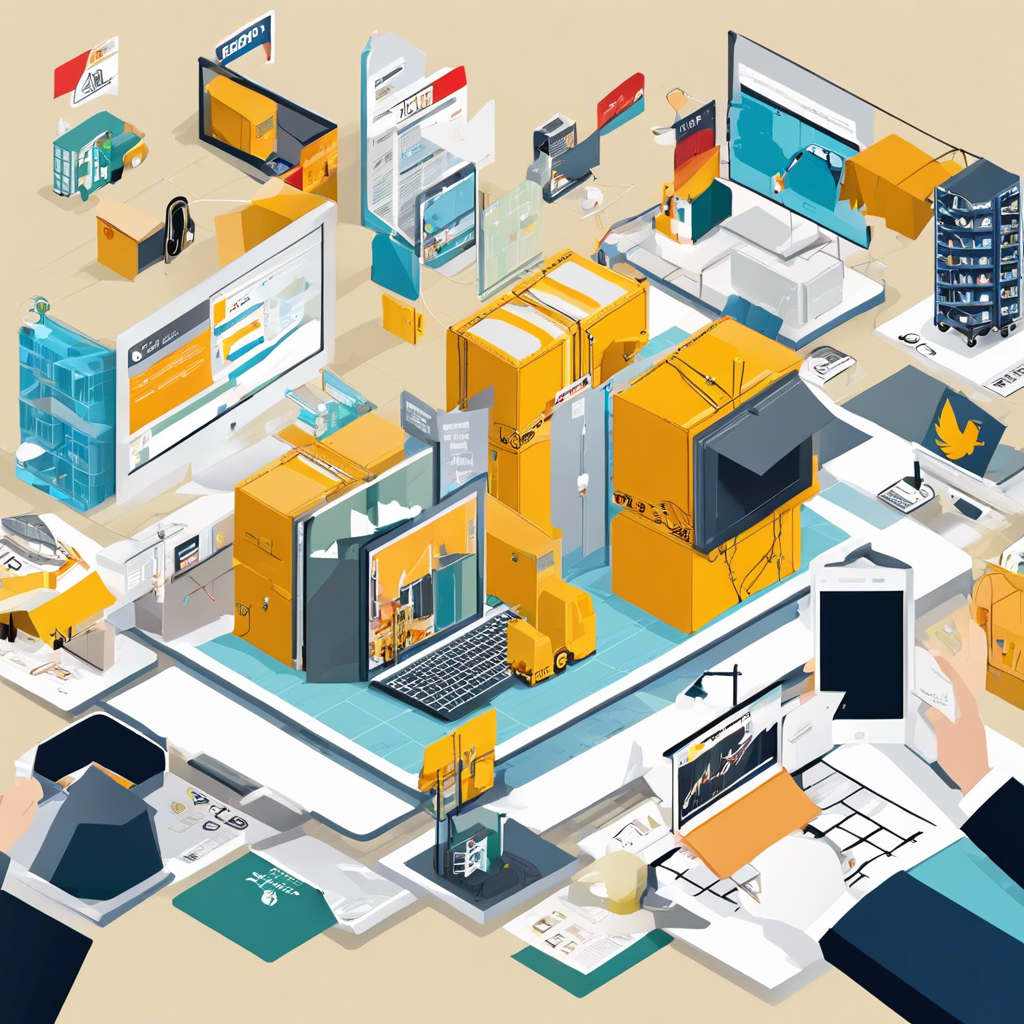Digital marketing revolutionizes the logistics sector, enhancing visibility, efficiency, and customer engagement.
The logistics industry, once primarily focused on physical operations, has undergone a significant transformation with the advent of digital technologies. In today’s hyper-connected world, digital marketing has emerged as a powerful tool, enabling logistics companies to not only showcase their services but also engage with customers on a deeper level. This article explores the multifaceted role of digital marketing in the logistics sector, highlighting its impact on brand visibility, customer experience, and overall business success.
## Enhancing Brand Visibility
In the competitive landscape of the logistics industry, establishing a strong brand presence is crucial. Digital marketing provides an unparalleled platform to achieve this.
Website as a Digital Hub
A logistics company’s website is more than just an online brochure; it’s the digital headquarters. It serves as the central hub for customers to learn about the company’s offerings, track shipments, and interact with the brand. Optimizing website content with SEO (Search Engine Optimization) ensures that potential clients find the business when searching for relevant services. A well-structured website not only informs but also builds trust, a vital aspect in the logistics-customer relationship.
Social Media Engagement
The rise of social media has brought a new dimension to marketing. Platforms like LinkedIn, Twitter, and Instagram offer logistics companies a direct channel to connect with clients and prospects. Through social media, businesses can showcase their expertise, share industry insights, and provide real-time updates, thereby fostering a sense of community and engagement.
## Revolutionizing Customer Experience
Digital marketing isn’t just about promotion; it’s an integral part of the customer journey in the logistics sector.
Personalized Interactions
With the wealth of data available, logistics companies can now offer tailored solutions to clients. Digital marketing tools allow businesses to analyze customer preferences, purchase history, and delivery patterns, enabling them to provide customized services. This level of personalization not only meets but often exceeds customer expectations.
Real-Time Updates and Notifications
In the logistics world, staying informed is paramount. Digital marketing facilitates the delivery of real-time notifications about shipment status, delays, and delivery confirmations. This keeps customers engaged and reduces the need for manual inquiries, improving overall customer satisfaction.
Interactive Platforms
Modern logistics companies are leveraging interactive platforms to provide customers with a seamless experience. From online chat support to comprehensive client portals, these platforms offer a one-stop solution for all customer needs, from booking shipments to tracking and managing invoices.
### Benefits of Digital Marketing in Logistics:
- Increased brand awareness.
- Improved customer retention.
- Enhanced operational efficiency.
## External Resources:
1. The Power of LinkedIn for B2B Marketing
2. A Beginner’s Guide to SEO
3. Using Twitter to Reach Your Target Audience
## Q&A:
How does digital marketing improve logistics operations?
Digital marketing streamlines logistics operations by providing a platform for transparent communication. It allows companies to share updates, potential delays, and service changes, ensuring customers are well-informed and reducing operational queries.
Can digital marketing help logistics companies expand their market reach?
Absolutely! With targeted digital marketing campaigns, logistics businesses can tap into new markets, attract a broader customer base, and showcase their specialized services to a global audience.
## Conclusion:
Digital marketing has become the linchpin for logistics companies in the modern era, offering a range of tools to enhance their market presence and customer relationships. From websites and social media to personalized services, the digital realm has transformed how logistics businesses operate and how customers perceive and interact with them. As technology advances, the logistics sector will continue to evolve, leveraging digital marketing to stay ahead in a dynamic marketplace.
